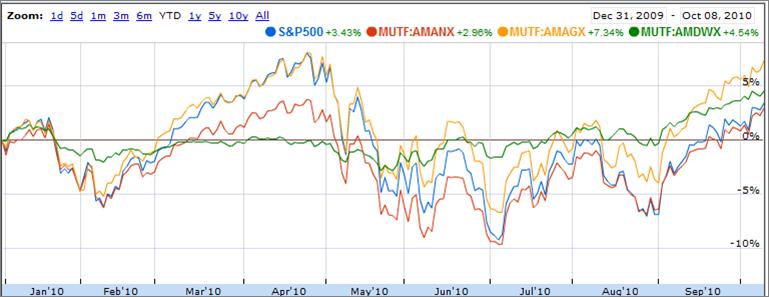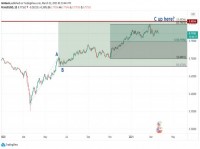|
Monem A. Salam is Director and Vice President of Islamic Investing and Amana's deputy portfolio manager. He was born in Pakistan in 1972 and raised in Texas, USA. Mr. Salam received his degrees from the University of Texas: BA (Austin) and MBA (Dallas). He worked as Chief Investment Officer for ITG & Associates (Dallas) until 1999, then as a representative with Morgan Stanley (suburban Dallas) until joining Saturna Capital in June 2003. Mr. Salam also manages many of SATURNA's Islamic private accounts. Q1: What motivated you/Saturna Capital to pursue Islamic fund
management? Saturna Capital, based in Bellingham, Washington, now administers a series of three different funds namely: Sextant, Idaho and Amana funds. It is currently the premier US based financial institution offering Sharia-compliant investment funds to investors through:
Q2: What do you think sets Amana funds apart from other Islamic funds? What sets Amana apart from other Islamic funds is our deep commitment to shareholders and our rigorous investment guidelines. Deep commitment to shareholders comes in two forms: 1) Our commitment to keep costs low: Since the creation of the funds, we have done everything in our power to reduce the expense ratio of the funds, and we are proud to say that as assets grow, this trend should continue; 2) Our commitment to being Sharia compliant: Having experience and history on our side, we feel we have come up with a unique formula for “grading” securities and knowing what qualifies for a buy, sell, or hold; this can only come from a balance between Sharia compliance, portfolio management and experience in the industry. Q3: In your view does Sharia compliance engender superior risk-adjusted returns? How have Amana Funds fared in comparison to its respective benchmark and what role has alpha played in investment fund strategy? In our opinion, the descriptive screens of avoiding companies involved in haram activities do not result in a superior risk-adjusted return. However, when this is coupled with the financial ratio screens, there is a significant value-add. For example, in the last crisis, our ability to avoid conventional banks did prove to add value to our portfolio relative to other funds. However, over the long term, as banks rebound from current lows, we will not be able to take advantage of this. What is more important over the long term is the debt-to-market capitalization ratio, as we have to screen out companies over 33%. This usually eliminates the riskiest ones and those most prone to getting in trouble due to economic instability Q4: How much time/effort/cost was involved in setting up SATURNA's Amana Funds? Do you think this represents a potential barrier to entry for other fund managers? Cost is not a factor when it comes to creation of funds; however, two important barriers to entry are time (to develop a track record) and marketing (where one must educate investors as to the benefits of Sharia compliant investing). Q5: What is the current investor breakdown for your funds in terms of onshore/offshore capital? How has this mix evolved over time? From the very beginning, the Amana Mutual Funds have been onshore for U.S. residents. We have no direct clients that are overseas. Q6: Does SATURNA market funds individually or as a range of products? If so, what would be the optimal mix between them? Saturna markets the Amana Mutual Funds, which is made up of three funds: Amana Growth, Amana Income, and Amana Developing World. We leave it to individual shareholders to decide what their optimum mix is. The investment objectives of the Amana Income Fund are to provide current income while preserving capital; dividend-paying stocks remain the top picks. The Amana Growth Fund, however, seeks to generate long-term capital appreciation; investments in small caps are considered. The Amana Developing World Fund is equally occupied with long-term capital growth albeit with diversification in emerging markets. Some select financials are included below:
Source: Morningstar (Financial Data as of 08/10/2010)
Q7: In your opinion are there any specific products missing from the
marketplace? Does SATURNA have any new products in the pipeline? The only effect that the financial crisis has had on the funds is that we have benefited from it, due to an increase in Assets under Management. As our performance dramatically outperformed conventional peers, many conventional investors have been buying our funds. Sharia restrictions towards investment in conventional financial institutions have also benefited Amana shareholders keeping returns relatively insulated from the effects of the current economic downturn. The Amana Growth Fund and its Developing World Fund have shown particular resilience outperforming the broader market in the in the first three quarters of 2010, as the following table illustrates. Fund Returns vs. S & P 500 Index
Your feedback and comments are very important to us, please feel free to contact the author via email. |
Opalesque Islamic Finance Intelligence
Fund Manager Interview: Monem A. Salam, Director of Islamic Investing, Saturna Capital |
|





 RSS
RSS









